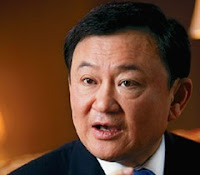.
Monday, 18 May 2009
Written by Sam Rith
The Phnom Penh Post
FORMER Tuol Sleng photographer Nhem En is putting all of his Khmer Rouge-era possessions - once destined for a museum in Anlong Veng - up for sale for US$1 million, saying that the global economic crisis is to blame for scuppering his monument to the regime whose most brutal moments he helped to document.
"I am calling on all interested individuals and companies, both inside and outside the country, to bid on more than 10 varieties of Khmer Rouge materials. The starting price is US$1 million," said Nhem En, who is deputy governor of Anlong Veng district in Oddar Meanchey province.
The items on offer include two cameras purportedly used to photograph prisoners at Tuol Sleng; 2,000 photographs of Pol Pot and other Khmer Rouge leaders; what he claims are Pol Pot's sandals, toilet, clothes and hat; a piece of car tyre that was used in Pol Pot's 1998 cremation; videos of military commander Ta Mok and other top regime cadre; and 1,000 songs on original tapes and pirated CDs.
"I spent all my spare cash trying to build the museum and I can't borrow from the bank because they are suffering from the global economic crisis," he said.
Nhem En said he had spent more than US$200,000 buying and clearing 50 hectares of land in Anlong Veng, but had garnered no support. He said the museum would cost $1 million to complete.
The announcement follows his April offer to sell what he said were Pol Pot's sandals and his cameras for US$500,000. But early interest faded after provincial officials reacted negatively.
Oddar Meanchey provincial Governor Pich Sokhin declined Sunday to comment on the revised offer, but added that he also had no objection to the museum being built.
But S-21 survivor Chhum Mey said people who might consider buying the items should instead give that money to the cash-strapped Khmer Rouge tribunal.
Read more!


 Bou Meng was singled out during the Khmer Rouge reign of terror in Cambodia to produce portraits of the group’s leader. (Photo:
Bou Meng was singled out during the Khmer Rouge reign of terror in Cambodia to produce portraits of the group’s leader. (Photo: 






 A boy shows off a rat he caught at Khos Thom district in Kandal province, 65km (40 miles) south of Phnom Penh near the Cambodia-Vietnam border, May 15 ,2009. REUTERS/Chor Sokunthea
A boy shows off a rat he caught at Khos Thom district in Kandal province, 65km (40 miles) south of Phnom Penh near the Cambodia-Vietnam border, May 15 ,2009. REUTERS/Chor Sokunthea





 Limsreang and his family face eviction after living in their home for 30 years
Limsreang and his family face eviction after living in their home for 30 years "It's a horrible feeling because they say they're doing this for us - for us the students" - Raimondo Pictet, student at the lycee and protester
"It's a horrible feeling because they say they're doing this for us - for us the students" - Raimondo Pictet, student at the lycee and protester